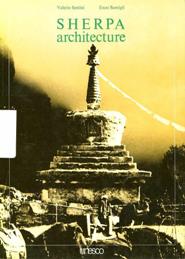 Sherpa Architecture
Sherpa Architecture

For many years Nepal had been closed to visitors, except for rare permission given to groups seeking to climb its towering peaks or to small numbers of scientists carrying outresearch on the flora and fauna of the Himalayas. The resultant static situation, in which the art, architecture, religion and way of life remained medieval in character during much of the twentieth century, came to an abrupt end in the 1950s with the restoration of the monarchy to power and the opening of the country to visitors. The long period of isolation ensured the survival of many examples of traditional art and architecture. During the past twenty years changes have been accelerating throughout Nepal and particularly in Katmandu.The government, conscious of the need to protect or to record its heritage before changes become too radical has called upon Unesco, and in turn Unesco is mobilizing the support of the international community, to aid it in carrying out a programme of conservation. This publication is one of the means through which one of the architectural traditions of Nepal is being recorded for posterity and the information widely diffused. The report, prepared by the Italian architects Valerio Sestini and Enzo Somigli, has been illustrated with their drawings and a selected number of their photographs. It has been translated into English by Timothy Paterson of Florence, Italy, and into French by Raymonde Frin, of Paris, France. The opinions and views expressed are those of the authors.
|